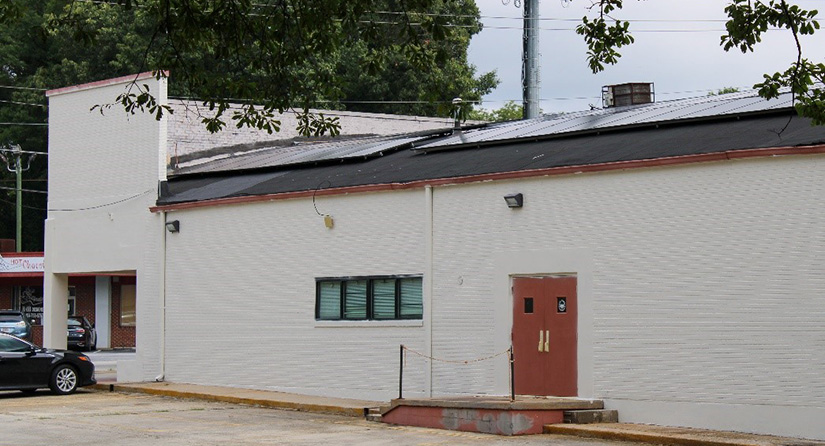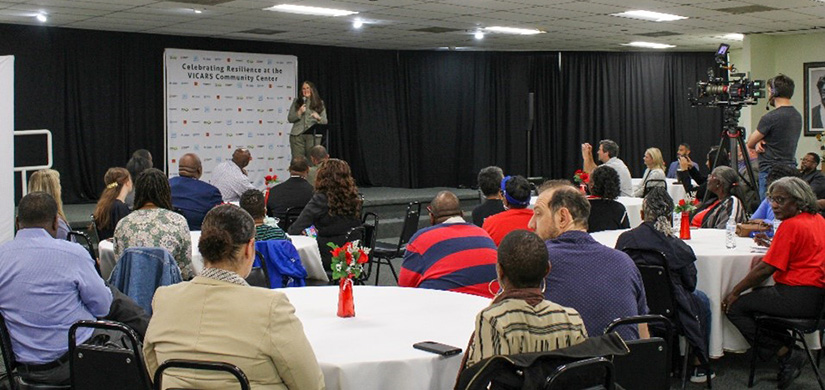New Community Resilience Hub in West Atlanta, Georgia, Built From Innovation Network Blueprint
July 22, 2024 by Kamyria Coney, NREL
Atlanta residents celebrate the first community-owned resilience hub following Solar Energy Innovation Network's (SEIN's) Breaking Barriers project, led by Groundswell.
During the second round of SEIN, the Groundswell-led Breaking Barriers project was designed to improve energy resilience at a campus of four historically Black colleges and universities located in West Atlanta, Georgia. The project also provides benefits to the surrounding energy-burdened community. The multistakeholder team enabled an innovative urban energy resilience hub integrating microgrid technology, on-site solar generation, and battery energy storage.

Taking the Breaking Barriers project as a blueprint, the Vicars Community Center at Community Church created one of the first community-owned resilience hubs in Georgia. Learn more from a Groundswell press release.
The 34.1-kW DC solar system connected to a 320-kWh battery storage system will achieve long-term electricity bill savings and supports the essential services offered by the church to Atlanta residents.
Groundswell worked closely with local leaders in the neighborhood to ensure the hub would meet community needs in an emergency. The Vicars Community Center was seen as an ideal site to host this system, as it is a trusted and centralized organization for community members. For example, the church serves a critical need in the community as a soup kitchen and food pantry that provides more than 300 meals to families every week. During emergencies, the solar energy system will maintain reliable power for essential services, provide a safe gathering place in the aftermath of severe weather events, and act as a hub to receive emergency updates.

Leveraging the IRS' elective pay and low-income bonus credit allocation through the Inflation Reduction Act, the Vicars Community Center project is structured to deliver community ownership on day one of system operation. Additional funding and support come from the GM Foundation, Stryten Energy, and the Wells Fargo Foundation, showcasing a collaborative effort to bolster community resilience. InterUrban Solar led the design and installation of the solar array.
Interested in applying lessons learned from SEIN in your community? Check out SEIN's Solar Community Assistance for Local Equity (Innovation at SCALE) to request assistance!
Interested in receiving updates about SEIN? Subscribe to our mailing list.
Share

